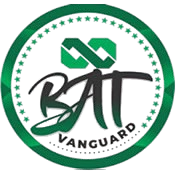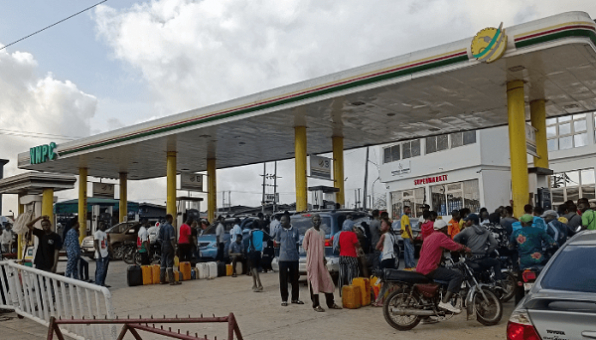Price of petrol is being moderated by the Federal Government and the Nigerian National Petroleum Company Limited (NNPCL) to guarantee stability, the oil giant has said.
The NNPCL said it has been making PMS available for retail distribution at about half of the landing cost under an agreement with the government to safeguard Nigerians from the global fluctuation in oil prices.
Its Chief Financial Officer Umar Ajiya explained that the company has been offsetting the shortfall in landing price and sale price through a reconciliation arrangement between the government and the company.
He said the company had not paid any money to any marketer in the name of petrol subsidy in the last eight to nine years.
While the official pump price of petrol is about N600 per litre, average landing cost is about N1,200.
Ajiya said the company covered about N7.8 trillion in “shortfall” in the first seven months of this year, making a distinction between the current arrangement and the inglorious past of “subsidy scam”, known for payments to third parties for sometimes frivolous claims on supply.
“I think there is one fact that I need to make very clear that in the last eight or nine years, that this company, even as a corporation as it were, has not paid anybody a dime or one naira as subsidy.
“No one has been paid a kobo by NNPC in the name of subsidy. No marketer has received money from us by way of subsidy,” Ajiya said at a news conference.
He said the government directs NNPCL to sell the petrol it imports, at a price that is half of the landing price.
He said the reconciliation of the shortfall has been between the federation and NNPCL.
According to him, at times the Federal Government pays the money and it could as well net off for it.
“What has been happening is that we have been importing PMS, landing at a certain price, and government is telling us to sell it at half price. So, that gap between that landed price and half price is what we call shortfall or we call it subsidy.
“And the deal is between the federation and ourselves to reconcile. Sometimes they give us money, sometimes we do net off. So, there is no money exchanging hands to any marketer or to anybody in the name of subsidy,” Ajiya said.
President Bola Tinubu on inauguration day May 29, last year, announced that fuel subsidy is gone. Prior to the removal, Nigeria was spending more than N400 billion on subsidy monthly with national consumption volume of over 60 million litres per day.
The figure was on the upward swing due to smuggling of the product which is of the highest grade in West and Central Africa to neighbouring countries.
Upon the phasing out of the payment, which was also in line with the Petroleum Industry Act (PIA) that fully deregulated the product price, the national consumption officially reduced to 50 million litres per day.
Prior to this, NNPCL had been enmeshed in what was known as “subsidy scam” under which huge payments were found to have been made to third parties as subsidy to bridge landing and sale prices. Several claims of product supply were found to be untrue.
Many oil chiefs were arraigned by the government over allegations of bogus subsidy claims.
Ajiya spoke at the presentation of the audited report and accounts of NNPCL for the 2023 business year in Abuja.
The Independent Petroleum Marketers Association of Nigeria (IPMAN), Mosimi Depot, yesterday attributed the current fuel scarcity in Ogun State and other Southwest states to the inability of NNPCL to make petroleum products available to its members three months after they had paid for the product.
IPMAN appealed to the Federal Government, as well as other critical stakeholders in the industry to prevail on NNPCL management to arrest the current situation, which has compounded the economic challenges residents, motorists and commuters are facing in the region.
Chairman, IPMAN, Mosimi Depot Otunba Femi Adelaja, who made this known while speaking in Abeokuta, Ogun State, said his members had since June made deposit payment of N75.142 billion to NNPCL for supplies through the Lagos Private Depot Owners (PDO) but NNPCL is yet to make the product available to its members.
Executive Vice President, Downstream, NNPCL, Dapo Segun , said it was not uncommon for the company to be in an open credit agreement with PMS suppliers, as it is a global practice in the industry.
He said that establishing an open credit agreement with suppliers spoke volume of the credibility which the national oil company had built over a period of time.
“Concerning the outstanding to the suppliers, it is not in that magnitude that has been put out, it is actually lower than the N6.8 billion.
“What matters really is the relationship between us and our suppliers to ensure that we keep faith in making these payments to our suppliers which we have done overtime.
“You would understand that it is not a static figure and I wouldn’t want to be quoting any figure, when we make payments it goes down, when they supply products it goes up.
“It is a dynamic way, but the most important thing is to ensure that we continue to make PMS available across the country,” Segun said.

